Lemon Bean
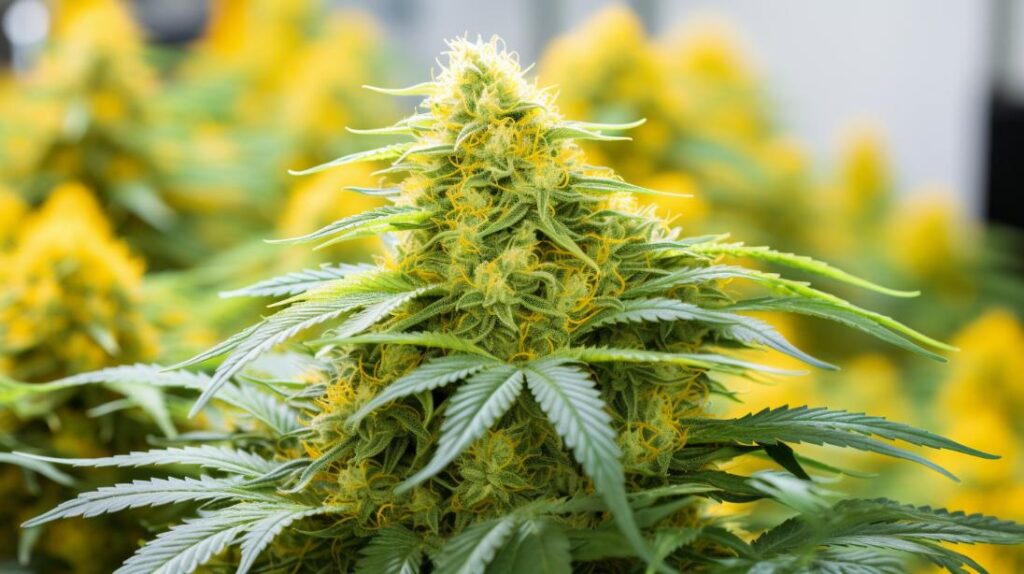
The Lemon Bean strain, a dynamic sativa with a genetic lineage rooted in the Lemon Tree and Eddy Lepp varieties, presents a compelling subject for those interested in the nuanced world of cannabis. Known for its distinctive lemon, citrus, and diesel aroma, this strain has carved a niche for itself among connoisseurs and patients alike, due to its potent THC content and the resultant energizing, focus-enhancing effects.
However, the conversation around Lemon Bean extends beyond its surface characteristics, touching on its broader implications for medical use, particularly in managing conditions like anxiety and depression. As we explore this strain further, one must consider the balance between its benefits and its potent nature, fostering a nuanced discussion on its place within the cannabis spectrum.
Genetic Lineage
The Lemon Bean strain, a notable hybrid, emerges from a meticulous genetic cross between Lemon Tree and Eddy Lepp, characterized by its predominantly sativa composition of 90%. This strategic hybridization not only leverages the robust genetic framework of its parent strains but also epitomizes the pinnacle of contemporary cannabis breeding techniques. The Lemon Tree lineage, in particular, imparts a significant influence on Lemon Bean’s profile, infusing it with a distinctive lemon, citrus, and diesel flavor palette that appeals to both connoisseurs and casual users alike.
Cultivation of the Lemon Bean strain necessitates a nuanced understanding of its sativa-dominant growth patterns, including a predisposition towards longer vegetative cycles and a requirement for ample lighting conditions to optimize photosynthetic efficiency. This strain thrives in environments that facilitate robust terpene development, which is crucial for achieving its signature aromatic profile. Industry insights suggest that Lemon Bean’s genetic heritage, combining the vigor of Lemon Tree with the resilience of Eddy Lepp, positions it as a compelling option for cultivators aiming to diversify their offerings with a strain that promises an energizing, creative, and uplifting user experience.
THC/CBD Content
With its THC content ranging between 22-23%, Lemon Bean strain emerges as a potent option for users seeking an elevated psychoactive experience, while its minimal to non-existent CBD levels indicate a focus on high THC effects over CBD’s therapeutic potentials. The THC/CBD ratio of Lemon Bean underscores its role in the cannabis market, where the demand for high-THC strains continues to rise among recreational users and certain medicinal users who benefit from THC’s effects.
-
High THC Concentration: Lemon Bean’s 22-23% THC content positions it as a strong contender for users desiring intense psychoactive effects.
-
Minimal CBD Presence: The negligible CBD content means Lemon Bean is less suited for those seeking CBD’s non-psychoactive benefits, such as anxiety relief or anti-inflammatory properties.
-
THC/CBD Ratio: This skewed ratio highlights Lemon Bean’s appeal to a specific consumer base looking for potency over balance.
-
Informed Decision-Making: Understanding Lemon Bean’s THC/CBD content is crucial for users to align their consumption with their desired outcomes, particularly if they prioritize psychoactive strength over therapeutic effects.
In the context of cannabis cultivation and consumption trends, Lemon Bean’s THC/CBD profile is reflective of a broader industry inclination towards developing strains that prioritize high THC levels, catering to a segment of the market with specific consumption preferences.
Terpene Profile
Diving into the terpene profile of Lemon Bean, myrcene emerges as the dominant compound, significantly influencing the strain’s characteristic aroma and flavor profile. This terpene is pivotal in defining the Lemon Bean’s unique sensory attributes, imparting a rich blend of lemon, citrus, and subtle diesel undertones. Myrcene’s presence is not merely for olfactory pleasure; it plays a crucial role in the strain’s overall synergy, potentially enhancing its therapeutic efficacy. The prominence of myrcene in Lemon Bean’s terpene matrix is noteworthy for cultivators and consumers alike, as it suggests a nuanced interplay between the strain’s aromatic bouquet and its effect profile.
In the broader context of cannabis cultivation and genetics, the terpene profile of Lemon Bean exemplifies the targeted breeding efforts aimed at achieving specific sensory experiences. Myrcene, alongside other terpenes, contributes to what is often described as the entourage effect, where the combined action of cannabinoids and terpenes is believed to produce a more profound impact than any single component alone. Understanding the terpene profile of Lemon Bean thus offers valuable insights into its aroma, flavor, and potential therapeutic benefits, underscoring the importance of terpenes in cannabis strain differentiation and selection.
Effects
Exploring beyond the aromatic allure of Lemon Bean, its effects on users are marked by an energetic, focused, and creatively stimulating experience. This unique blend of sensations is not only due to its rich terpene profile but also to its sophisticated genetic lineage, which combines the best traits of its Lemon Tree and Eddy parent strains. With a THC content ranging between 22-23%, Lemon Bean is especially noted for its ability to elevate mood, enhance mental clarity, and spark creativity, making it an ideal choice for daytime use.
The primary effects of Lemon Bean can be summarized as follows:
-
Energetic Uplift: Users often experience a surge of energy, which is conducive to both physical activity and mental tasks.
-
Focus and Clarity: A heightened sense of focus and alertness allows for increased productivity and the ability to tackle complex tasks with ease.
-
Creative Stimulation: The strain is renowned for unlocking creative potential, making it a favorite among artists and creative professionals.
-
Mood Enhancement: Reports of feeling uplifted, motivated, and even giddy are common, contributing to an overall sense of well-being.
These effects underscore Lemon Bean’s status as a versatile strain, suitable for enhancing a wide array of daily activities and creative endeavors.
Medical Uses
The therapeutic profile of the Lemon Bean strain demonstrates efficacy in managing conditions such as anxiety, depression, and stress, attributed to its elevated THC content and unique cannabinoid composition. In the realm of medicinal cannabis, the Lemon Bean strain emerges as a significant player, with statistics showing a substantial percentage of users experiencing relief from these conditions. Specifically, 26% of users report significant anxiety relief, 19% find alleviation from depression, and 16% observe a reduction in stress levels after its use. These percentages underscore the strain’s potential as a therapeutic agent within the medical cannabis community.
It is important to note, however, that consultation with a medical professional is highly recommended before utilizing the Lemon Bean strain for medical purposes. This is due to its higher-than-average THC potency levels, which, while contributing to its medicinal effectiveness, also necessitate careful consideration and guidance for optimal use. The Lemon Bean strain’s pharmacological efficacy is thus not only a function of its cannabinoid profile but also of a judicious, informed approach to its application in medical contexts.
Flavor and Aroma
Beyond its therapeutic benefits, the Lemon Bean strain is distinguished by a sensory profile marked by a pronounced lemon scent, elevating the user experience through its vivid aromatic and flavor characteristics. The intricate relationship between aroma and flavor in the Lemon Bean strain is not coincidental but a result of meticulous cultivation practices and genetic selection aimed at enhancing the sensory appeal of the strain. The lemon scent, a pivotal aspect of its aromatic profile, intensifies upon breaking the buds, releasing a refreshing and invigorating fragrance reminiscent of lemon groves. This scent is not just an olfactory treat but also indicative of the strain’s rich terpene profile, which contributes to its therapeutic efficacy.
The flavor and aroma of the Lemon Bean strain are characterized by:
- A prominent lemon scent that accentuates the olfactory experience, making it more pronounced when the buds are broken.
- An invigorating lemon fragrance that refreshes and stimulates the senses.
- A tangy and citrusy taste, evoking the sharp zestiness of lemon Warhead candies.
- A harmonious blend of aroma and flavor that creates a unique and memorable experience for the user.
This synergy between flavor and aroma underlines the Lemon Bean strain’s appeal, offering an engaging sensory experience that complements its therapeutic benefits.
Appearance
Distinguished by its vibrant tapestry of green, purple, and blue hues, the Lemon Bean strain’s appearance is a testament to its meticulous cultivation and genetic selection. This strain exhibits a visual spectacle that not only captivates the eye but also serves as an indicator of its high-quality genetics and superior cultivation techniques. The buds are adorned with an abundance of orange pistils that weave through the colorful foliage, enhancing the strain’s overall aesthetic appeal. Such a display of vivid colors and prominent pistils is not just a feast for the eyes but a hallmark of the strain’s vigor and health.
The Lemon Bean buds are renowned for their eye-catching and visually striking presence, which sets them apart in the cannabis market. Their fresh appearance and the sense of careful cultivation they convey speak volumes about the dedication to quality and service in their production. The distinctive visual characteristics of the Lemon Bean strain are not merely a result of chance; they are the outcome of a sophisticated blend of genetics, environmental control, and cultivation expertise. This unique appearance serves as a signature of the strain, making it easily recognizable and highly sought after by connoisseurs and professionals alike.
Grow Information
Having explored the distinctive visual appeal of the Lemon Bean strain, attention now shifts to its cultivation requirements, which are essential for achieving its notable characteristics. Cultivating this strain presents a unique set of challenges and rewards, demanding careful attention to detail and a deep understanding of its growth cycle and environmental needs.
For cultivators aiming to maximize the potential of their Lemon Bean plants, several critical factors must be considered:
-
Optimal Climate: Lemon Bean thrives in a warm and sunny climate, with temperature ranges between 70-85°F. This strain’s preference for such conditions necessitates careful environmental control, especially when grown indoors.
-
Flowering Time: It has a flowering period of approximately 9-10 weeks when cultivated indoors. This timeframe is essential for planning the grow cycle and ensuring plants receive the right care at each stage.
-
Plant Height and Space: With its moderate growth height, Lemon Bean is suitable for both indoor and outdoor settings. However, space considerations and privacy concerns may influence the choice of cultivation location.
-
Pruning and Maintenance: Regular pruning and trimming are vital to maintain proper airflow and light exposure. This practice not only supports optimal growth but also enhances privacy by controlling plant size and shape.
Understanding and implementing these cultivation requirements are paramount for achieving high yields of the resinous, lemon-scented buds characteristic of the Lemon Bean strain.
Adverse Effects
While the Lemon Bean strain is celebrated for its aromatic and resinous qualities, consumers should be aware of its potential adverse effects, including headaches, dizziness, and anxiety. These manifestations, though commonly reported among users, underscore the importance of moderating intake and recognizing individual tolerance levels. Moreover, the occurrence of dry mouth and dry eyes serves as a prevalent caveat, necessitating adequate hydration and perhaps the use of ocular lubricants to mitigate discomfort.
A subset of users has reported experiencing a heightened sense of paranoia or mild paranoid episodes, which, while infrequent, highlight the strain’s potent psychoactive profile. Additionally, Lemon Bean may induce an accelerated heart rate or feelings of jitteriness, particularly in individuals sensitive to tetrahydrocannabinol (THC) or those with pre-existing cardiovascular conditions.
It is crucial to note that the adverse effects associated with Lemon Bean consumption are typically mild and transient, dissipating with the waning of the psychoactive experience. These observations emphasize the need for responsible usage and the potential benefit of consulting with a healthcare professional prior to incorporating Lemon Bean into a therapeutic regimen, especially for individuals with a history of anxiety or cardiovascular concerns.
Comparisons with Similar Strains
In the realm of cannabis genetics, Lemon Bean stands out by offering a unique blend of energizing and euphoric sensations, closely mirroring the effects of its relative, Lemon Tree. This strain’s distinctive characteristics can be better understood through comparisons with similar strains, highlighting its unique position in the cannabis market.
-
Eddy Lepp versus Lemon Bean: While Eddy Lepp is known for its relaxing properties, Lemon Bean shifts the focus towards enhancing creativity and focus, making it a preferred choice for activities requiring mental clarity.
-
Lemon Haze and Lemon Bean: Both strains share a citrusy flavor profile, with Lemon Bean and Lemon Haze offering uplifting effects. However, Lemon Bean distinguishes itself with a more pronounced lemon aroma, a testament to its genetic lineage shared with Lemon Skunk.
-
Lemon Skunk’s Influence: The shared genetics between Lemon Bean and Lemon Skunk contribute to a potent lemon taste and aroma, setting Lemon Bean apart in terms of sensory experience.
-
Lemon OG Comparison: Lemon Bean offers a unique twist with a more noticeable diesel undertone in its flavor profile compared to Lemon OG, making it a distinct choice for enthusiasts seeking complexity in taste.
These comparisons highlight Lemon Bean’s unique attributes within the cannabis industry, underscoring its appeal to connoisseurs and casual users alike.
Research and Studies
Recent studies underscore the Lemon Bean strain’s significant THC content, averaging between 22-23%, and its efficacy in alleviating symptoms of anxiety, depression, and stress among users. This potent cannabis variety, a genetic cross between Lemon Tree and Eddy Lepp, boasts a unique profile that contributes to its therapeutic benefits. The strategic hybridization enhances its terpene profile, leading to a distinctive flavor and aroma, while also amplifying its psychoactive and medicinal potential.
Research findings highlight that users often experience a surge in energy, focus, and creativity, indicating the strain’s ability to influence cognitive functions positively. This makes Lemon Bean particularly appealing for individuals seeking relief without the sedative effects commonly associated with high THC strains. The specialized breeding process involved in its cultivation emphasizes the importance of genetic selection in developing strains tailored for specific therapeutic outcomes.
Given the potent nature of Lemon Bean, consultation with a medical professional is strongly recommended before its use for medical purposes. This precaution ensures that users can maximize the benefits while mitigating potential adverse effects. The ongoing research into Lemon Bean’s efficacy and safety underscores the evolving understanding of cannabis’s role in mental health management.
History and Origin
Tracing the origins of the Lemon Bean strain reveals a meticulous crossbreeding process between the Lemon Tree and Eddy Lepp strains, aimed at achieving a superior terpene profile and enhanced therapeutic effects. This genetic amalgamation resulted in a 90% sativa and 10% indica hybrid, distinguished by its THC concentration ranging from 22-23%. The Lemon Bean strain’s development was guided by a commitment to optimizing its flavor and therapeutic potential, underscoring the importance of targeted genetic selection in the cannabis industry.
Key aspects of the Lemon Bean strain include:
- Genetic Lineage: A deliberate hybridization of Lemon Tree and Eddy Lepp strains.
- Terpene Profile: Dominated by myrcene, offering distinct lemon, citrus, and diesel notes.
- Therapeutic Efficacy: Noted for its ability to alleviate symptoms of anxiety, depression, and stress.
- Sativa Dominance: Its 90% sativa composition contributes to the uplifting effects, promoting energy, focus, and creativity among users.
In alignment with industry Terms of Service and ethical cultivation practices, the creation of Lemon Bean underscores the technical prowess and innovative approaches employed within the cannabis sector to cater to consumer demands for both recreational and medicinal use.
Frequently Asked Questions
Is Lemon Bean a Sativa or Indica?
Lemon Bean is primarily a sativa, with a genetic origin comprising 90% sativa and 10% indica. This composition underlines its sativa-dominant characteristics, offering energizing and uplifting effects typical of its predominant genetic lineage.
Is Lemon a Sativa or Indica?
In discussing lemon varieties within the cannabis industry, it’s crucial to differentiate between strains. Lemon strains typically exhibit sativa-dominant characteristics, offering energizing and uplifting effects, although specific genetics can vary among different lemon-named cultivars.
Is Lemon G Sativa?
Lemon G, a sativa-dominant strain, boasts genetic origins tracing back to esteemed sativa lineages, offering users a cerebral, energizing experience. Its cultivation details emphasize its robust growth and significant terpene profile, valued in the industry.
What Is Lemon Tree Strain Good For?
The Lemon Tree strain, renowned for its medical benefits, is primarily utilized for alleviating stress, anxiety, and depression. Its unique terpene profile contributes to its therapeutic efficacy, making it a favored choice in medical cannabis communities.

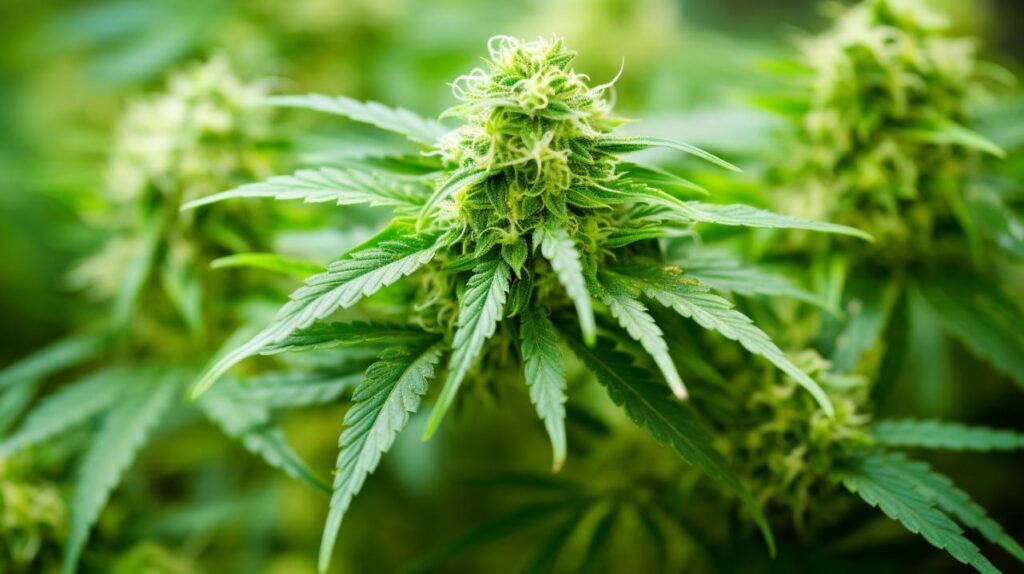

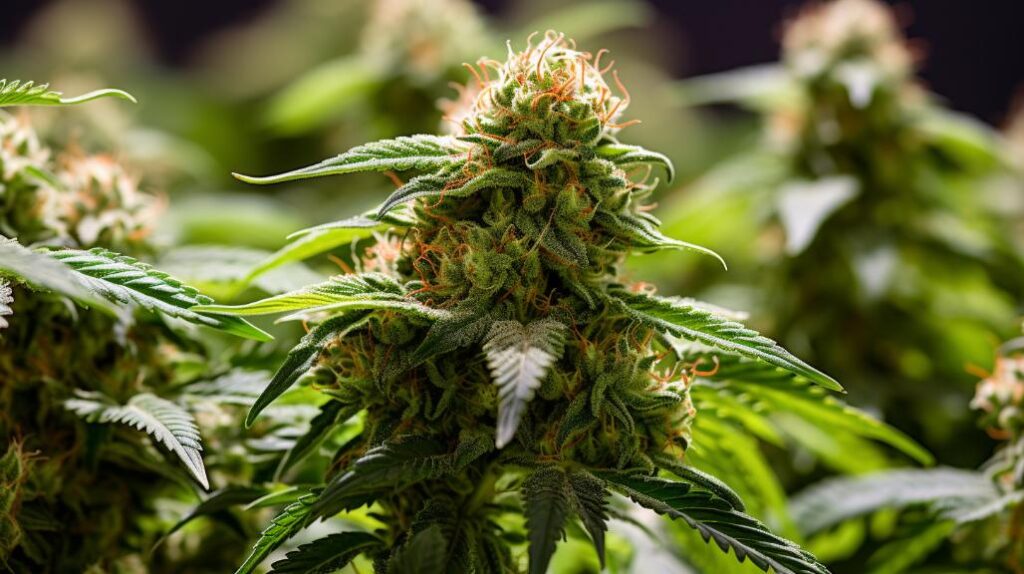
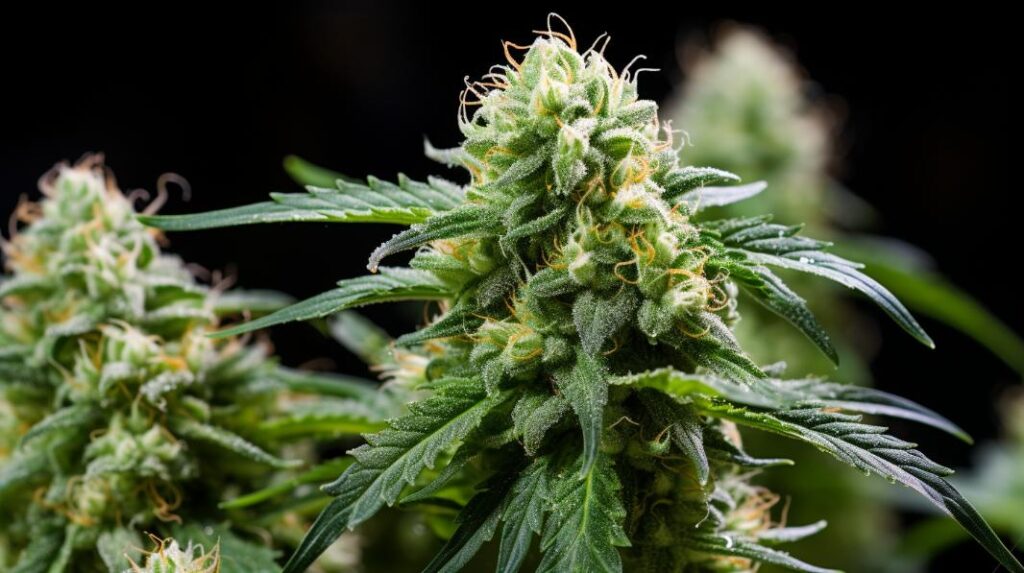
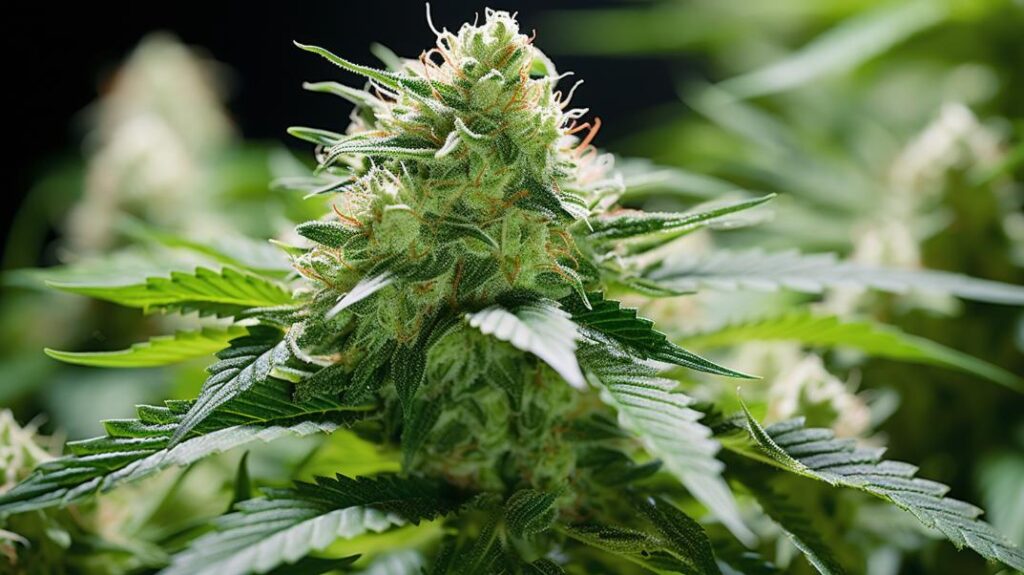

Responses